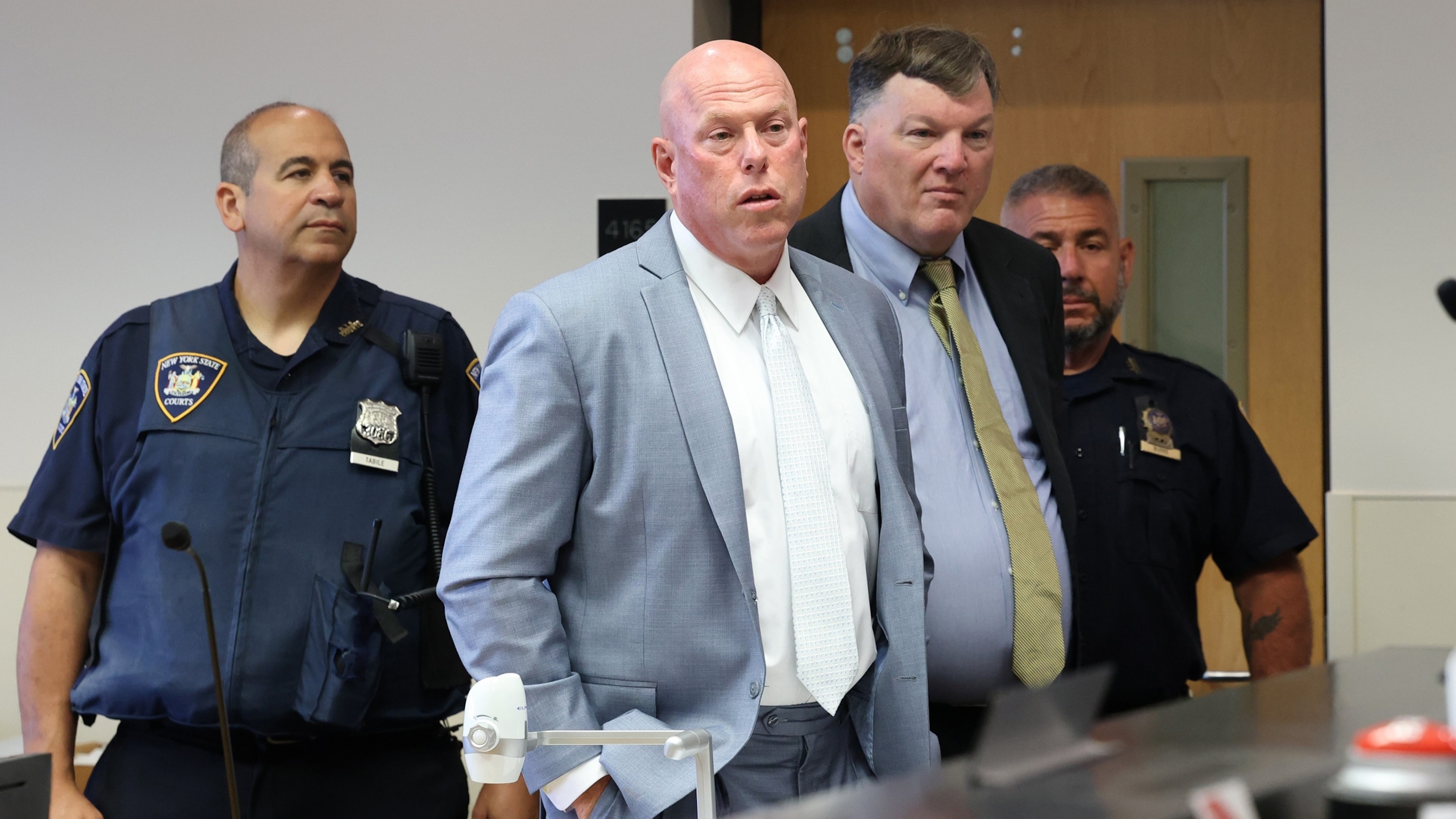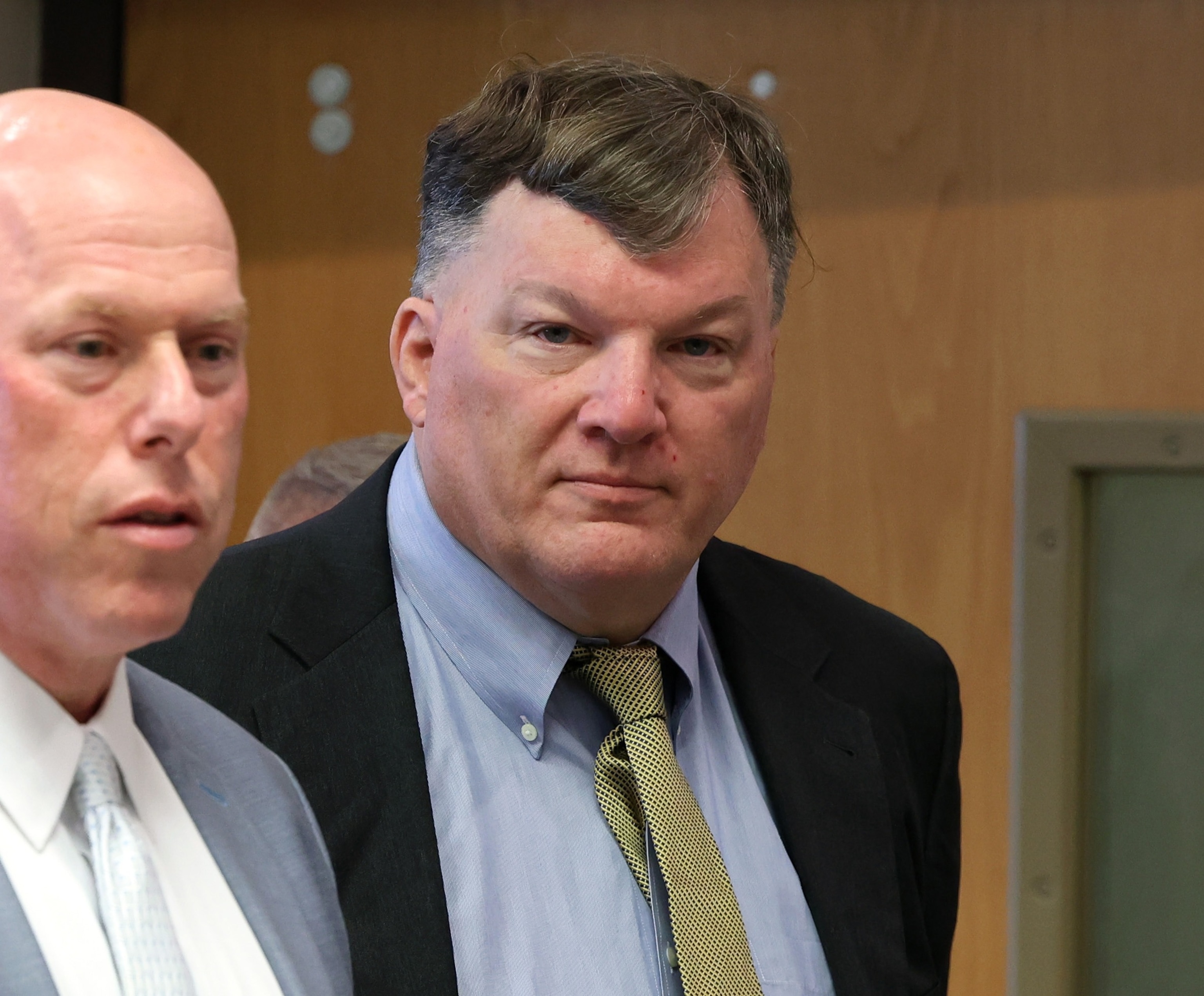A New York judge on Wednesday admitted DNA evidence that Suffolk County prosecutors say links alleged Gilgo Beach serial killer Rex Heuermann to six of the seven women he is accused of killing.
The defense had challenged the evidence since it was obtained using new DNA technology — known as whole genome sequencing — that had never been used in a New York court.
Prosecutors successfully argued the technology was derived from accepted scientific methods. Ahead of a series of court appearances over the summer, prosecutors argued the defense motion to dismiss the evidence should be denied because the technique is “generally accepted in the scientific community” and is based on technology “relied upon in a wide variety of scientific and forensic settings.”

Rex Heuermann, who is accused of killing seven women over the span of decades on Long Island, appears in court in Nassau County, Sept. 3, 2025.
James Carbone/Newsday, Pool
Heuermann, who was arrested in July 2023, has pleaded not guilty to the murders of seven women whose remains were found discarded on Long Island between 1993 and 2011.
His attorneys had urged the judge to preclude evidence pertaining to DNA results obtained from hairs recovered from six victims: Maureen Brainard Barnes, Megan Waterman, Amber Costello, Sandra Costilla, Jessica Taylor and Valerie Mack.
Judge Timothy Mazzei ruled Wednesday that nuclear DNA results obtained from rootless hairs recovered from the six victims are admissible at the trial.
Mazzei said the use of whole genome sequencing to extract DNA from the hairs, create a profile and then compare that profile to Heuermann “is generally accepted in the relevant scientific community.”
Popular Reads
The judge said he based the decision on expert testimony, peer-reviewed articles and use of the technology in other states, including California and Idaho.
“We won. The evidence is admissible,” Suffolk District Attorney Ray Tierney said. “Full speed ahead for trial.”

Rex Heuermann, who is accused of killing seven women over the span of decades on Long Island, appears in court in Nassau County, Sept. 3, 2025.
James Carbone/Newsday, Pool
The decision marks the first time the techniques are allowed as evidence in a New York court and the district attorney said it could allow more cold cases to move forward for prosecution.
“Obviously this is another tool in our toolbox,” Tierney said.
Prosecutors have alleged the DNA links hairs from six of the seven Gilgo Beach victims to Heuermann, his wife and daughter. “Obviously that’s a key factor in this case,” Tierney said.
The defense is still waiting for a decision on its motion to break up the case into multiple trials. Mazzei said he would rule on that later this month at the next hearing scheduled Sept. 23.
This is a developing story. Please check back for updates.
US A New York judge on Wednesday admitted DNA evidence that Suffolk County prosecutors say links alleged Gilgo Beach serial killer Rex Heuermann to six of the seven women he is accused of killing.The defense had challenged the evidence since it was obtained using new DNA technology — known as whole genome sequencing — that had never been used in a New York court.Prosecutors successfully argued the technology was derived from accepted scientific methods. Ahead of a series of court appearances over the summer, prosecutors argued the defense motion to dismiss the evidence should be denied because the technique is “generally accepted in the scientific community” and is based on technology “relied upon in a wide variety of scientific and forensic settings.”Rex Heuermann, who is accused of killing seven women over the span of decades on Long Island, appears in court in Nassau County, Sept. 3, 2025.James Carbone/Newsday, PoolHeuermann, who was arrested in July 2023, has pleaded not guilty to the murders of seven women whose remains were found discarded on Long Island between 1993 and 2011.His attorneys had urged the judge to preclude evidence pertaining to DNA results obtained from hairs recovered from six victims: Maureen Brainard Barnes, Megan Waterman, Amber Costello, Sandra Costilla, Jessica Taylor and Valerie Mack.Judge Timothy Mazzei ruled Wednesday that nuclear DNA results obtained from rootless hairs recovered from the six victims are admissible at the trial.Mazzei said the use of whole genome sequencing to extract DNA from the hairs, create a profile and then compare that profile to Heuermann “is generally accepted in the relevant scientific community.”Popular ReadsThe judge said he based the decision on expert testimony, peer-reviewed articles and use of the technology in other states, including California and Idaho.”We won. The evidence is admissible,” Suffolk District Attorney Ray Tierney said. “Full speed ahead for trial.”Rex Heuermann, who is accused of killing seven women over the span of decades on Long Island, appears in court in Nassau County, Sept. 3, 2025.James Carbone/Newsday, PoolThe decision marks the first time the techniques are allowed as evidence in a New York court and the district attorney said it could allow more cold cases to move forward for prosecution.”Obviously this is another tool in our toolbox,” Tierney said.Prosecutors have alleged the DNA links hairs from six of the seven Gilgo Beach victims to Heuermann, his wife and daughter. “Obviously that’s a key factor in this case,” Tierney said.The defense is still waiting for a decision on its motion to break up the case into multiple trials. Mazzei said he would rule on that later this month at the next hearing scheduled Sept. 23.This is a developing story. Please check back for updates.Adblock test (Why?)
ABC News: Top Stories



